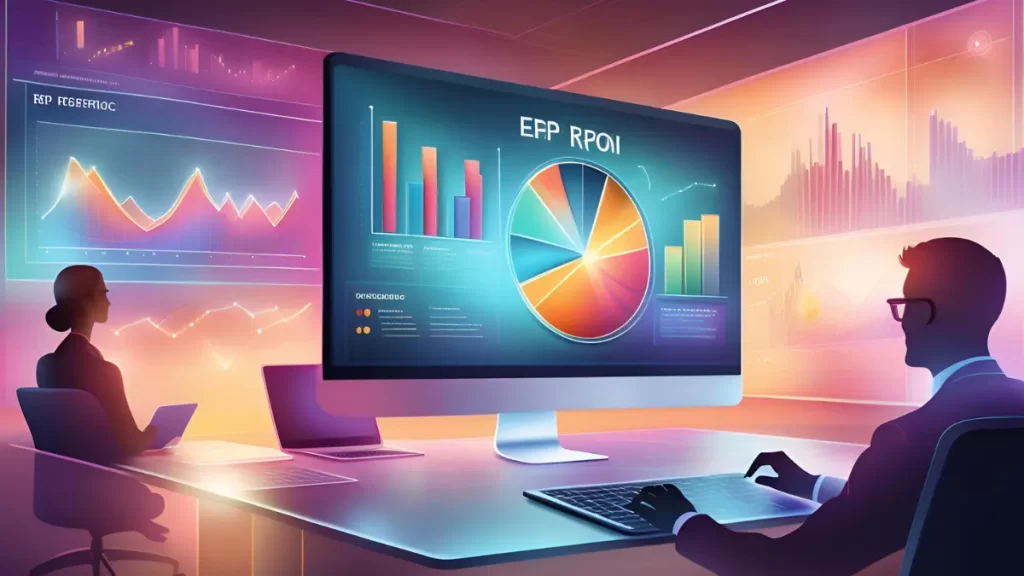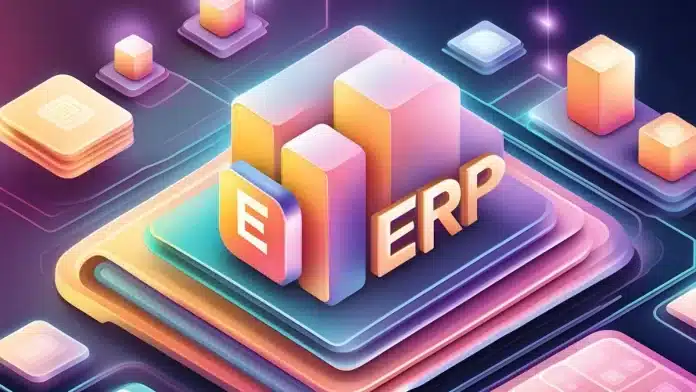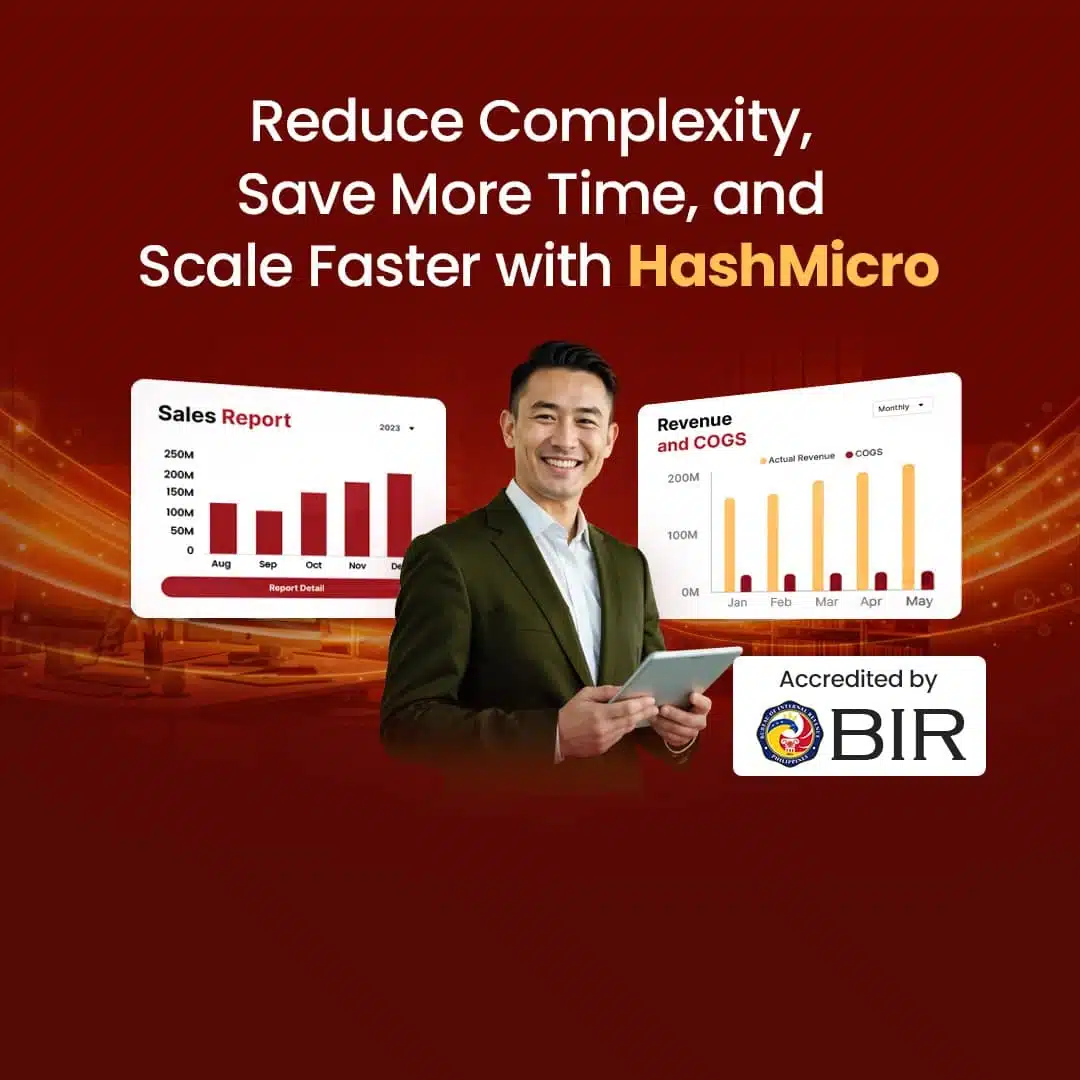Implementing an enterprise resource planning (ERP) system is a significant investment for businesses in the Philippines. To ensure that your organization gets the most out of its ERP investment, it is essential to maximize the return on investment (ROI).
This article will provide strategies and tips for Philippine businesses to maximize their ERP ROI, improve business efficiency, and increase profitability.
Table of Contents
Introduction
In this section, we will provide an introduction to ERP system and their impact on business efficiency. ERP systems, short for enterprise resource planning systems, are software solutions that integrate various business processes and provide real-time data to streamline operations. By implementing an ERP system, businesses can improve efficiency, productivity, and profitability.
Philippine businesses can greatly benefit from ERP systems as they help optimize processes and enhance overall operational performance. With the ability to track and manage various aspects of a business, such as inventory, finance, human resources, and customer interactions, ERP systems enable organizations to make data-driven decisions and improve business outcomes.
One of the key advantages of implementing an ERP system is the automation of manual tasks. By automating repetitive and time-consuming processes, such as data entry and report generation, businesses can significantly reduce the risk of errors while freeing up valuable time for employees to focus on more strategic tasks.
Furthermore, ERP systems provide real-time data and insights, allowing businesses to make informed decisions. With access to accurate and up-to-date information, organizations can respond quickly to market changes, identify opportunities, and address challenges promptly.
Calculating the return on investment (ROI) for ERP investments is crucial for Philippine businesses. ROI analysis helps organizations justify the initial investment and assess the long-term benefits and financial impact of implementing an ERP system. By accurately calculating ROI, businesses can make informed decisions regarding their ERP investments and evaluate the effectiveness of their implementation strategies.
Understanding ERP ROI

To maximize the return on investment (ROI) of an enterprise resource planning (ERP) system, it is crucial to understand the concept of ERP ROI. ROI is defined as the measure of the financial gain or loss generated from an investment relative to the amount of money invested. In the context of ERP implementation, ROI refers to the benefits and value that an organization can achieve as a result of implementing an ERP system.
The benefits of an ERP system have a dual nature, with both tangible and intangible returns. Tangible benefits are measurable and quantifiable, such as cost savings, increased efficiency, and improved data accuracy. These benefits directly impact the financial metrics of a business and can be easily evaluated.
On the other hand, intangible benefits are more difficult to quantify but still contribute to the overall value of an ERP system. These intangible benefits include enhanced decision-making, streamlined processes, better collaboration, and improved customer satisfaction. Although intangible benefits may not have a direct monetary value, they play a significant role in driving long-term business success and competitiveness.
Understanding the dual nature of ERP benefits is essential for Philippine businesses to assess the true impact of an ERP implementation on their organization. By considering both tangible and intangible returns, businesses can make informed decisions and evaluate the overall value that an ERP system brings to their operations.
If you are interested in learning more about how the best ERP system can be tailored to meet your business’s requirements, click on the banner below to view HashMicro ERP’s pricing scheme.

Calculating ERP ROI
To maximize the return on investment (ROI) of your ERP system, it is essential to have a clear understanding of how to calculate it. By following a guideline and using the ERP ROI formula, you can accurately determine the value your investment brings to your business.
First and foremost, forecasting ERP costs is crucial. This includes considering the initial investment required to implement the ERP system, as well as the ongoing expenses associated with maintenance, support, and upgrades. By accurately forecasting these costs, you can have a clearer picture of the financial impact of your ERP implementation.
Next, it is important to identify and forecast the returns you expect to achieve from your ERP system. This involves considering the efficiency gains, cost savings, and other tangible and intangible benefits that the ERP system will bring to your business. By organizing data and conducting a thorough analysis, you can quantify these returns and assess their impact on your overall ROI.
By following these steps and organizing your data effectively, you can calculate the ROI of your ERP system with confidence. This will provide you with valuable insights into the financial impact of your ERP investment and enable you to make informed decisions moving forward.
Factors Influencing ERP ROI

When it comes to maximizing the return on investment (ROI) from your enterprise resource planning (ERP) implementation, several key factors can significantly influence your success. In this section, we will explore these factors and provide insights on how to enhance your ERP ROI.
The Role of Data Organization
Efficient data organization is crucial for extracting valuable insights from your ERP system. By ensuring that your data is well-structured, easily accessible, and accurately maintained, you can make informed decisions and optimize business processes. Proper data organization enables you to identify trends, analyze performance, and identify areas for improvement, ultimately leading to enhanced ERP ROI.
The Importance of People and Processes
While technology is a vital component of ERP systems, the success of your implementation depends heavily on your people and processes. It is essential to have skilled and trained employees who can effectively utilize the ERP system and align it with your business goals. Additionally, well-defined and optimized processes are crucial for maximizing efficiency and productivity, ultimately impacting your ERP ROI. By investing in employee training and process optimization, you can unlock the full potential of your ERP system.
Comprehensive Planning and Realistic Timeframes
Comprehensive planning plays a vital role in realizing maximum ROI from your ERP implementation. It involves setting clear goals, creating a well-defined roadmap, and allocating the necessary resources. Additionally, it is crucial to establish realistic timeframes for each stage of the implementation process. Rushing the implementation or setting unrealistic deadlines can lead to mistakes, inefficiencies, and compromise the overall ROI. By taking the time to plan meticulously and allowing for a realistic timeline, you can optimize your ERP ROI and ensure a successful implementation.
Next, we will provide valuable tips to help you increase the ROI of your ERP system, focusing on areas that can boost efficiency, leveraging the system strategically, and avoiding common pitfalls in implementation.
Tips to Increase the ROI of an ERP System
To maximize the return on investment (ROI) of your ERP system, follow these tips to boost system efficiency, leverage the capabilities of ERP, and avoid common pitfalls in implementation:
1. Focus on Key Areas: Identify specific areas in your business operations where ERP can have the most impact. By targeting these key areas, such as inventory management or order fulfilment, you can optimize processes and increase overall efficiency.
2. Streamline Workflows: Take advantage of the automation and integration features of ERP to streamline workflows. This can eliminate redundant tasks, improve communication between departments, and reduce errors, resulting in increased productivity and cost savings.
3. Train and Engage Employees: Ensure that your employees receive proper training on using the ERP system effectively. Engage them in the implementation process, encourage feedback, and address any concerns or resistance to change. When employees are knowledgeable and engaged, they can fully leverage the capabilities of ERP, leading to improved performance.
4. Regularly Assess and Optimize: Continuously evaluate your ERP system’s performance and identify areas for improvement. Regular assessments can help you identify bottlenecks, areas of inefficiency, and opportunities for optimization. Make necessary adjustments to maximize the system’s effectiveness and ROI.
5. Stay Up-to-Date with Upgrades: Keep your ERP system up-to-date with the latest upgrades and enhancements. New versions often come with improved functionalities, bug fixes, and security updates that can further boost system efficiency and performance.
6. Leverage Data Analytics: Utilize the data analytics capabilities of your ERP system to gain valuable insights into your business operations. By analyzing data, you can identify trends, predict future demand, and make data-driven decisions that can enhance efficiency and profitability.
4. Partner with an Experienced ERP Provider: Collaborate with an experienced ERP provider who understands the unique needs and challenges of Philippine businesses. Their expertise can help you navigate the implementation process, avoid common pitfalls, and ensure that your ERP system is optimized for maximum ROI.
Implementing these tips will allow your Philippine business to increase the ROI of your ERP system, boost system efficiency, leverage the full potential of ERP, and avoid common pitfalls. By maximizing the benefits of your ERP investment, you can enhance overall business performance and profitability.
ROI of ERP: FAQs for Philippine Businesses

Understanding the return on investment (ROI) of an ERP implementation is crucial for organizations in the Philippines to make informed decisions and maximize the value of their investment.
To begin, let’s explore the process of calculating ERP implementation ROI. It involves evaluating the costs associated with implementing an ERP system and identifying the returns it can bring to your business. By following a step-by-step approach, you can determine the financial impact of implementing an ERP system.
However, it is important to note that the business value of ERP goes beyond the numbers. While calculating ROI is essential, it is equally important to understand the intangible benefits that ERP can bring to your organization. These include improved operational efficiency, streamlined processes, and better collaboration across departments.
When it comes to cloud-based ERP solutions, another common question is the timeframe for realizing returns. While the precise timeframe may vary depending on your business and the complexity of the implementation, cloud ERP systems often offer faster returns compared to on-premise solutions. This is because cloud ERP allows for faster deployment and scalability, enabling businesses to start seeing benefits sooner.
However, it’s essential to be aware of the challenges that can arise during ERP integration. Integrating ERP into existing systems and processes can be complex and may require significant effort. Common challenges include data migration, change management, and user adoption. By understanding these challenges, you can better prepare and mitigate any potential risks.
Finally, let’s delve into the critical elements of a standard ERP system. These elements include modules for finance and accounting, human resources, supply chain management, customer relationship management, and more. A well-rounded ERP system should have these modules to support various aspects of your business and enable seamless integration.
Conclusion
As you can see, maximizing the ROI of your ERP investment is crucial for the success of your business in the Philippines. By navigating the future with strategic planning and informed decisions, you can realize the full potential of your ERP system.
HashMicro ERP brings long-term benefits, such as improved efficiency, streamlined processes, and enhanced business performance. Making informed decisions based on data and industry insights can significantly impact your ERP ROI.
It is essential to stay ahead of the curve and adapt to advancements in technology and market trends. By embracing new features and functionalities of your ERP system, you can leverage its capabilities to the maximum and unlock new opportunities for your business.
Try the free demo now!




































